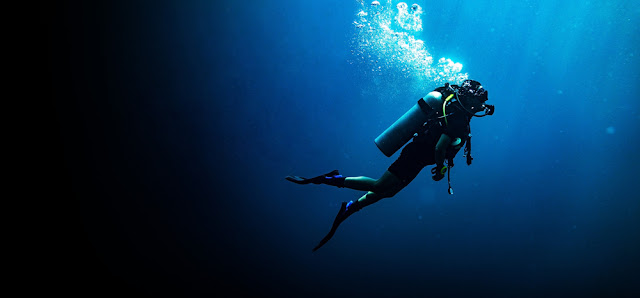What is Scuba Diving? Everything to know about Scuba refresher
Introduction:
Almost everyone has heard about scuba. Self-Contained Underwater Breathing Apparatus is an acronym for such.
The allure of the inaccessible marine environment is a major draw for those who scuba dive. In this respect, nature remains mostly unconquered by us, as we cannot live submerged. Therefore, scuba diving allows us to experience the undersea environment, if only for a short while.
The undersea world is stunning as well, and many people travel to Asia, the Red Sea, or the Great Barrier Reef to go scuba diving because these places are among the best in the world. Visitors are continually wowed by the array of marine life and vibrant hues on display at each of these spots.
Everyone who wants to go scuba diving must first earn their certification. The fundamentals of diving were covered, such as how to use the equipment and how to coordinate with one another while submerged. You only need to complete the initial course to get certified, but you may always take further training to improve your abilities over time. These classes are obligatory when there is a long gap between dives or when there is an approaching dive that will test your skills. To cut a long tale short, before you jump headfirst into scuba diving Fort Worth, be sure you've considered every possible scenario.
What do you mean by a "Scuba Refresher"?
A scuba refresher is a program in which a diver reviews the fundamentals of diving in a pool or shallow water setting under the guidance of a dive professional. A session on knowledge development, perhaps including a brief quiz, and a comprehensive review of equipment use are also essential components. This is not to be confused with a "check dive," during which scuba divers are required to verify their weights and execute a few skills to prove they know the basics of diving before venturing into deeper water for a fun dive.
Will You Benefit from a Scuba Refresher Course?
Everyone who wants to go scuba diving must first earn their certification. The fundamentals of diving were covered, such as how to use the equipment and how to coordinate with one another while submerged. You only need to complete the initial course to get certified, but you may always take further training to improve your abilities over time. These classes are obligatory when there is a long gap between dives or when there is an approaching dive that will test your skills. To cut a long tale short, before you jump headfirst into scuba diving Fort Worth, be sure you've considered every possible scenario.
The Professional Association of Diving Instructors (PADI) proposes that divers who did not dive in the last six months should complete a scuba refresher course.
When it comes to scuba diving, unlike many other sports, a diver's mental state is more likely than their actual skill level or knowledge to pose a threat to their safety. In the perspective of an inexperienced diver, even a minor issue has the potential to become a life-threatening emergency. A scared diver poses risks not just to themselves but also to their dive partner, divemaster, or instructor. Even little issues, such as a leaky regulator or water in the mask, might set off a panic attack.
For this reason, PADI and SSI recommend that divers who haven't been underwater in the last six months participate in a refresher dive, during which they will (re)learn the fundamental skills they may have lost and cover the following topics:
To be able to float effortlessly under water
Because of your familiarity with basic precautions and methods of underwater communication
Clearing your mask and reclaiming your second stage
When and how to go in the deep end
Experienced divers who haven't been diving for more than six months can usually determine for themselves if they need a formal course to restore their scuba skills, but everyone who hasn't dived in a year should give serious thought to taking one.



.png)
Comments
Post a Comment